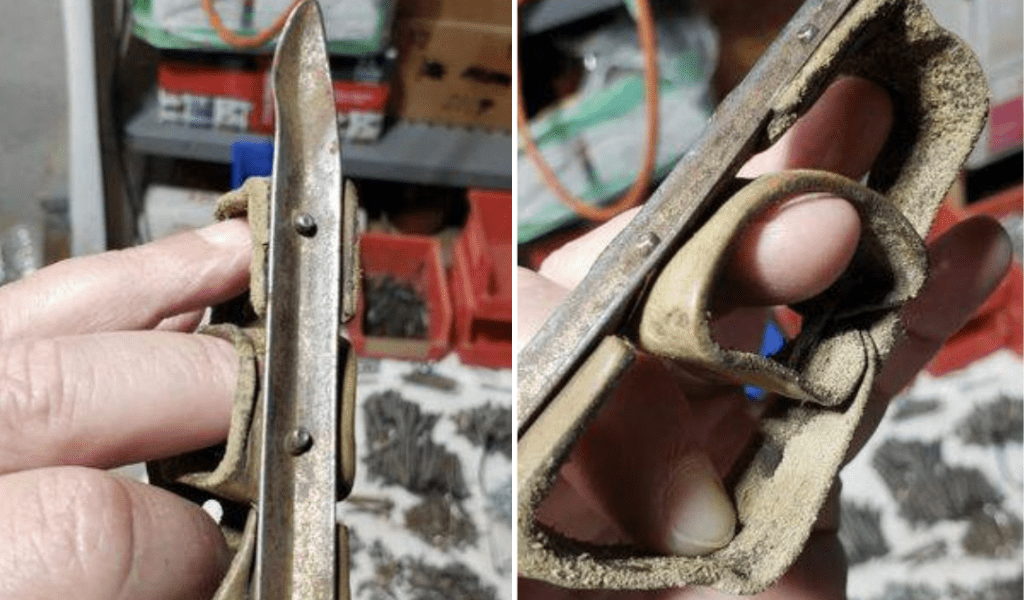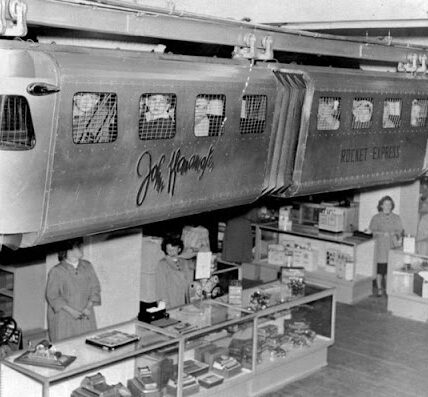Do you remember those endless summer days spent at your grandmother’s farm, where the only sounds were the rustling of hay and the chirping of crickets? Life seemed simpler then, and even the most mundane tasks carried a sense of joy. One of the chores that always brought families together was husking corn. It wasn’t just a task; it was a cherished tradition.
The process was not just about preparing food—it was about bonding, storytelling, and a friendly competition to see who could husk the most corn. A peculiar tool often found its way into this tradition: the corn husker. This old utensil, with its leather loops and metallic scoop, was more than just a farm tool; it was a symbol of innovation, hard work, and simpler times.
The Vintage Corn Husker: A Simple Yet Ingenious Tool
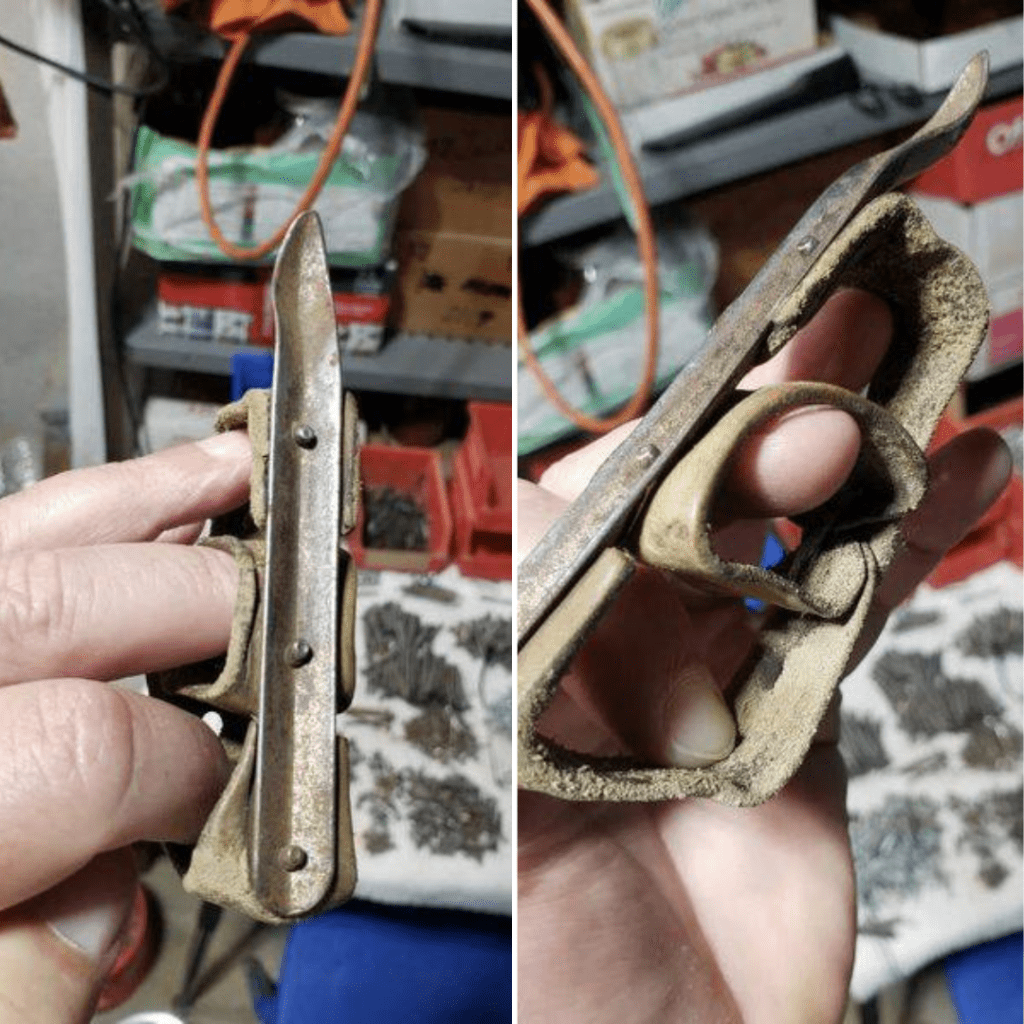
The corn husker, sometimes referred to as a corn sheller, was a familiar sight on many American farms in the early 20th century. It featured three leather loops that fit snugly over the fingers and a long, metallic scoop designed for quick and efficient husking. This tool was both functional and symbolic, making husking easier while embodying the resourcefulness of farming communities.
The leather loops provided a strong grip, allowing users to hold the corn firmly, while the metallic knife-like scoop made removing husks a breeze. It was an ingenious solution for a repetitive task, showcasing the creativity of a generation that relied on hand tools before modern machinery took over the fields.
Corn Husking as a Family Affair: More Than Just a Chore
Corn husking was more than just an agricultural task; it was a family event that brought people together. The process turned into a lively gathering, with everyone—children, parents, and grandparents—working side by side. Conversations flowed easily, stories were told, and laughter echoed across the fields. The competition to husk the most corn often led to playful banter, making the hard work feel more like a game.
The corn husker added an element of novelty to this activity. The tool’s efficiency not only made the task easier but also allowed more time for connection. It was a testament to the way people of that era combined work and pleasure, making even the simplest tasks meaningful.
The Corn Husker: A Symbol of Ingenuity and Resilience
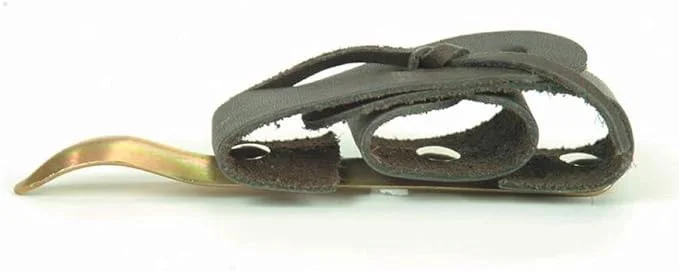
The corn husker stands as a symbol of the American farmer’s ingenuity and adaptability. In an era where tools were created out of necessity, the corn husker demonstrated the innovative spirit of farming communities. It wasn’t just a tool to be used and discarded—it became a part of daily life, representing the grit and determination of those who tilled the land.
Using a corn husker required skill, patience, and a strong work ethic—traits that defined the American farmer. It also represented a time when people made do with what they had, often using available materials to create functional tools. The corn husker, with its simple yet effective design, was a product of this resourceful mindset.
The Emotional Connection to Corn Husking
For many, the corn husker is more than just an antique—it is a connection to fond memories of the past. It evokes a sense of nostalgia, taking us back to a time when life’s challenges were met with hard work and a sense of community. Husking corn was more than a task; it was an experience that nurtured relationships and created lasting bonds.
Imagine listening to an old friend recount stories of “the good old days,” surrounded by the scent of fresh hay and the sight of endless fields. The corn husker was part of that scene, a silent witness to the laughter, the sweat, and the satisfaction of a job well done. It brings back memories of bright barns, warm evenings, and the simplicity of life on the farm.
Appreciating the Simplicity of the Past
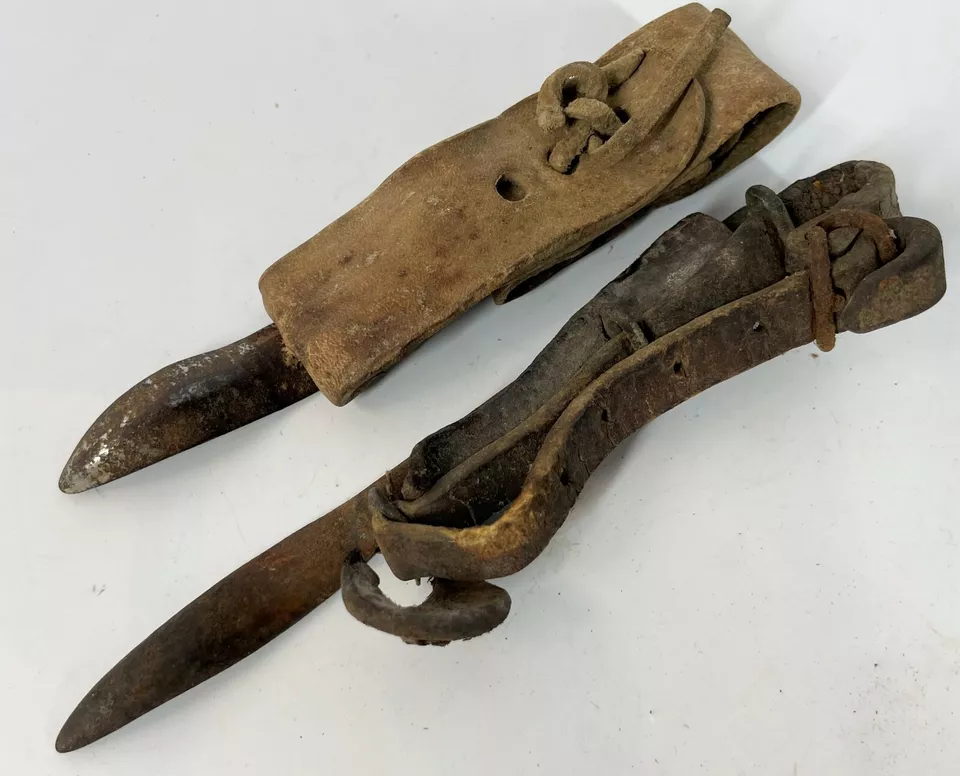
In today’s fast-paced world, it’s easy to overlook the lessons of the past. Tools like the corn husker remind us of the importance of patience, perseverance, and the joy of honest work. They serve as a reminder that sometimes, slowing down and embracing the process can bring more fulfillment than rushing toward the end result.
The corn husker, with its worn leather and polished metal, represents a time when innovation came from necessity, not convenience. It reminds us that success is often built on hard work, collaboration, and the ability to adapt to constraints. These are values that still hold true today, even as modern technology transforms agriculture.
The Corn Husker as a Collector’s Treasure
For antique enthusiasts and collectors, the corn husker holds a special place. It is more than just a functional tool; it is a piece of history. Finding a vintage corn husker can feel like uncovering a treasure—a tangible link to the days when farm life was simpler, yet filled with meaningful connections.
These tools are often found at antique shops, estate sales, or even online marketplaces. They serve as a reminder of an era when farmers relied on hand tools to complete tasks that now involve complex machinery. While modern farming equipment may be faster, the corn husker represents a time when hard work was done by hand, and success was measured in bushels.
Conclusion: Honoring the Legacy of the Corn Husker
The vintage corn husker is more than just a piece of farming equipment; it is a symbol of the American spirit—resourceful, resilient, and rooted in tradition. It represents a time when families worked together, shared stories, and found joy in the most mundane tasks. It is a reminder of the beauty of simplicity, the value of hard work, and the importance of community.
So, the next time you come across a corn husker—whether in an antique store or as a keepsake from the past—take a moment to appreciate its heritage. It is a part of history that tells stories of honest labor, creative solutions, and a deep connection to the land. In a world that often feels rushed and disconnected, the corn husker is a comforting reminder of the rewards of simpler times.
